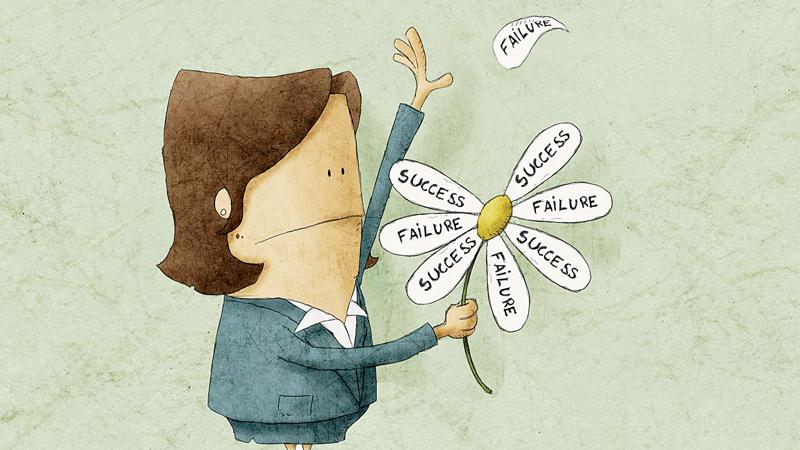
For many decades, we have been instilled with advice about the ‘wisdom of failure’. We have perused so much literature and been taught by successful business personalities and self-help gurus about the importance of learning from failures or mistakes.
 There are numerous stories about failures turned into spectacular successes which have been used heavily to strengthen this belief.
There are numerous stories about failures turned into spectacular successes which have been used heavily to strengthen this belief.
These are excellent feel-good stories. They have a self-effacing quality that is refreshing in an era when we see politicians refuse to acknowledge even the most spectacular mistakes and disastrous financial practices creep their way back into our economy. And these stories do give us a hope of redemption, even in our lowest moments.
The problem with the focus on failure is that failure is a weak process when put up directly against its counterpart: success. Failure isn’t the process driving all of this growth and change; it’s only an unfortunate by-product. I want to be clear that I’m not against learning from failure. It’s certainly useful that humans have the rare biological luxury of being able to learn, non-lethally, from our failures — we can remember them, share stories about them, even laugh about them.
And all the stories and lessons about what you can learn from failure represent real opportunities to do better. The problem is that none of the advice and literature on failure fairly compares ‘learning from failure to learning from success’.
You can’t be successful in a complex world without being intensely observational and responsive, but you also can’t keep that success up without continuing to be vigilant and adaptable.
Compare failure and success
To maximize learning in an organization you need abundant information or experiences that are rich in content, accurate and are available to learn from in a timely manner.
To fairly compare the wisdom of failure to the wisdom of success, we should ask some comparative questions about how learning from success or failure captures and processes information.
We should ask how abundant or common are useful failures compared to useful successes? If opportunities for learning are rare, it’s hard to make a practice out of them. Unfortunately, truly useful failures that change our thinking are relatively rare. To make a fair comparison, we should ask about the quantity of information we can glean from each individual success or failure. The vast majority of failures are too light on information to be of much use.
It’s great to salvage some learning from a failure, but that doesn’t help too much with the damage that’s already occurred. If you institutionalize learning from failure, it means you’ll always be behind the curve.
Cultural shift
There is a key difference between merely enjoying success and actually learning from success. Learning from success is an active process that needs to become part of an organization’s culture and not let you fall into the complacency trap that is so often cited in dire warnings about companies that basked in their own successes.
Many organizations today have a learn-from-failure culture. Talking about what went wrong in the past is an everyday experience, institutionalized in practices like ‘after action’ reporting that invariably are heavily weighted on failure reporting. Continually focusing on failure is disastrous for morale.
Fortunately, it’s very easy to make a cultural shift here.
You merely need to ensure that at least some of your ‘after action’ reporting, whether it occurs in meetings or memos or informal chats, is dedicated to what went right.
Even an event that was largely a failure, probably has some small successes that need to be shared. The usual reasons offered — staying too close to existing customers and a myopic focus on short-term financial performance — don’t fully explain how leaders who had steered these firms to greatness lost their touch.
